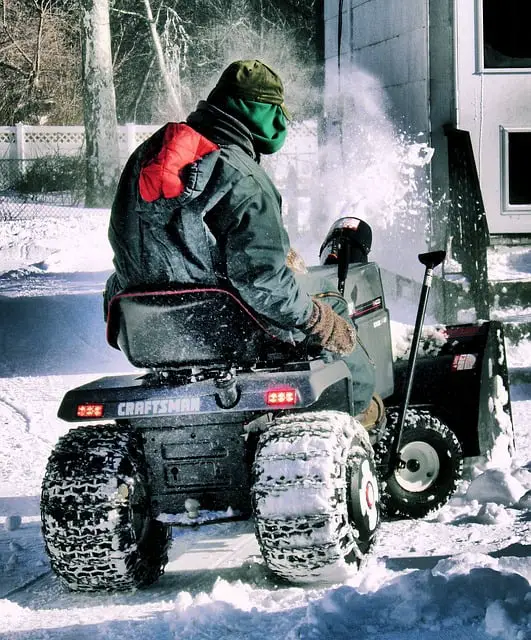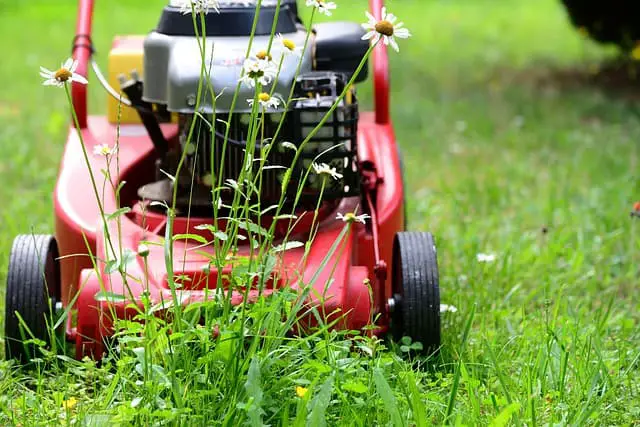The best second-hand tractor to buy will come from one of three companies: John Deere, Massey Ferguson or New Holland. There are others too, but they are iffy depending on the model, year and total prior usage. These will include brands like Fendt and Case IH.
But, regardless of the brand, the best second-hand tractor will rely on several factors. This means that just because you find a John Deere in poor condition doesn’t mean it will be better than a Kubtoa with only a few years of use.
Why Is John Deere a Good Second-Hand Tractor to Buy?
John Deere is a very sought-after brand of tractor due to the fact that is has such a low depreciation value per year. The quality engineering and construction of the tractor along with the composite plastic that covers it all contribute to its high resale value.
The best model, by all accounts, is the 8295R. Not only does its performance stay stellar through even the roughest jobs, but it also only depreciates 9.5% per year. You can find used ones ranging between $40,000 and $240,000. But it should last you for at least 15 years with little to no repairs.
Why Is Massey Ferguson a Good Second-Hand Tractor to Buy?
Since 1953, Massey Ferguson is synonymous with a quality tractor for the price. The caliber is comparable to what John Deere offers but they’ve been able to maintain affordability. As a matter of fact, it’s the number one tractor that farmers in India seek out over John Deere.
Massey Ferguson has several models with an excellent resale value. These include, the 6490, 6480, 4255 and the 5455. Even though some of these date back as far as 1997, they still pack a punch for small farms and homesteading operations. You can find a used one ranging between $35,000 and $75,000.
Why Is New Holland a Good Second-Hand Tractor to Buy?
New Holland is usually the third top choice for their resale value. Not only do they make a decently reliable tractor, they also have durable skid steers that retain their value throughout its lifespan. The engine has a good design and they are readily available in most places. Farmers in the US and Australia tend to opt for this in quality and affordability.
Unfortunately, it doesn’t seem as though there’s any one model that has an excellent second-hand standing. It’s really going to depend on how well the previous own took care of the tractor and how many hours it has under its belt. That said, you can find a decent used one for $20,000 to $60,000.
What Other Brands Make a Great Second-Hand Tractor?
There are many other brands on the market that produce a solid tractor with a reasonable resale value. Albeit not as good as John Deere, Massey Ferguson or New Holland, these can include brands like:
- Fendt
- Case IH
- Mac Don
- Ford
- Kubota
- Fiatagri
- Valtra
- Deutz Fahr
What Do You Look for to Find the Best Second-Hand Tractor to Buy?
The most evident indicator of a brand being the best second-hand tractor is in its average depreciation percentages per year. This is why John Deere is such a popular tractor brand. Even after several thousand hours of use, its depreciation only goes down about 9% to 13% per year. Most other brands will be as much as 14% or more.
However, there are other things you should look for in a tractor when you begin your hunt for one:
- Jobs & Tasks: Think about what you need to get out of a tractor. Do you just want it for leveling land or do you need it to cut grass, haul equipment, clear snow and make hay?
- HP to Farm Size: Consider the space you have to manage, what the terrain is like and how much horsepower (HP) you will need. Deep ground planting or hilly terrain will need more horsepower than personal landscaping.
- Prior Miles & Hours of Use: Just as if you were buying a used vehicle, the miles and hours of use the previous owner put on it will be a great determiner in price. Plus, it will also give you a general idea about any repairs you have to make prior to using the equipment for your own ends.
- Interior & Exterior Condition: Although certain things will be cosmetic wear and tear, the condition of the interior and exterior of the tractor will be somewhat important. It can show you a lot about how the previous owner treated it and what kind of strain the machine experienced.
Consider the Tractor Types
There are various sizes of tractors out there that can handle different types of jobs and terrains. You don’t want a monster-sized tractor when all you have is a small nursery. There are about four general types of tractors:
- 4WD: A good overall general purpose tractor, four-wheel drive gives the ability to use it over almost any terrain. It’s also excellent for planting and tilling as well as land-leveling jobs.
- Compact: As the name suggests, compact tractors are small. This allows you to get into small spaces and is ideal for nurseries, landscaping and homesteading.
- Row Crop: Farmers with large crops will want this kind of tractor. The tires are bigger to give more clearance from the ground with a robust design for hauling.
- Utility: These are the biggest tractors available. They can handle a myriad of terrain types and jobs. They can help with excavations, livestock and hay production.
How Long Can You Expect a Second-Hand Tractor to Last?
If you find yourself a decently used tractor, you can expect it to last for about 10 years. But, if it was initially in a shabby state, then maybe it will have a lifespan of around five to eight years. That said, if you and the previous owner keep it purring like a kitten, then it could very well last in excess of 15 years.
Hi, I’m John Stephens, chief editor and writer for Totalgardener.com. I’ve been gardening and raising animals for over 15 years starting with a small backyard plot in Northern Virginia where I grew corn, potatoes, squash, and using a high mulch technique called the Ruth Stout Method. I also raised ducks and small mammals for meat and eggs in a movable pen similar to the ones used by Joel Salatin. I later moved to Colorado where I experimented with growing greens using aquaponics inside. I eventually added a microgreens setup and home sprouting operation. I’m excited to share everything I’ve learned plus more from the other local gardening and animal raising experts I know.



